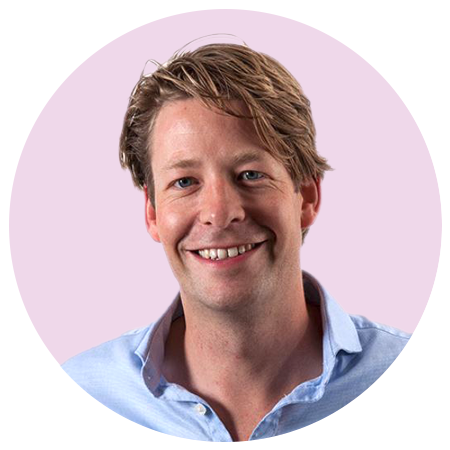Pushing Forward: Venture Capitalist Priorities To Accelerate European Biotech
Executive Summary
Sharing his thoughts on the European funding landscape, the importance of software, and sustainable investments, INKEF Capital’s Thijs Cohen Tervaert talks to In Vivo about his investment priorities.
In Vivo Rising Leader Thijs Cohen Tervaert is a junior partner at INKEF Capital, having joined the venture capital firm in 2016, he serves on the board of ViCentra B.V., Aidence, Audion Therapeutics BV , Calypso Biotech BV, TargED Biopharmaceuticals B.V., and electronic data capture company Castor.
Funding Strategy, Learning From Tech
Founded in 2010 by Dutch pension fund ABP/APG and with €500m under management, Amsterdam-based INKEF is one of the largest venture capital funds in the Netherlands. The group runs a long-term fund with a 20-year cycle, allowing it to commit significant amounts to its portfolio companies.
The VC aims to get in early on projects, said Cohen Tervaert, preferring seed and series A investments. Investing around €15m ($16.5) to €30m over the early lifecycle of a company, INKEF seeks to back sustainable businesses that can grow into European leaders.
“We look for entrepreneurs that really want to build something that is meaningful, that can hit the market, and that’s going to make a difference to patients,” Cohen Tervaert told In Vivo. INKEF invests half of its fund into healthcare and half into technology, which, Cohen Tervaert said, provides a lot of benefits to the firm. “We can invest at the intersection of both [healthcare and technology] for example emerging new technologies that lead to AI-based drug discovery or digital therapeutics,” he explained.
The company has the internal knowhow to advise its portfolio companies on scaling a business, evaluating AI technologies to build software, and how to attract and retain talent. These are areas where Biotech can learn from the Tech sector.
The founder culture that is active in the technology side is spilling over into the biotech industry, said Cohen Tervaert, which is changing the way biotech start-ups operate.
“If you look at the technology sector, there is a hypothesis-driven, scaling-and-building-teams way of thinking, and the biotech industry is now also adopting that mentality in building companies and in attracting talent, especially in a market where there's an enormous scarcity of talent,” he said. “How do you build teams? How do you keep people happy? How do you develop people within a team? These are areas where we can learn a lot from our tech colleagues. And we at INKEF can also bring these insights to the healthcare companies we work with.”
The Next Generation Of European Biotech Entrepreneurs
Cohen Tervaert looks for founders that have a working hypothesis they want to test along the way. Typically, he has invested more in “products” companies where he can assist with a strategy to see preclinical potential translate into efficacy in the clinic. People also make the difference. Cohen Tervaert looks for a “phenotype of young scientists that are brilliant and have entrepreneurial ambition and want to evolve as leaders.”
The Dutch thrombosis company, TargED Biopharmaceuticals, is a good example of this, he explained. Cohen Tervaert met TargED co-founder Marc van Moorsel, then a PhD student, at a conference and following a call and visits to his laboratory, decided to invest in the spin-off company.
Admittedly still with bias around working on stroke therapeutics, a famously tricky indication where there have been no new drug approvals since the approval of tPA in the nineties, Cohen Tervaert was swayed by the first preclinical results, that showed efficacy in the in the stroke models, “that really triggered our interest” he recalled. “In addition to that, they had a whole thesis around that market opportunity within ATTP as a base case. That combination made us very interested at that moment in time. Having been able to follow that company and see how the leaders of the company evolved, that was a good signal to us that this was a really good team to back.”
“This is a people business,” he said. It's never too early to talk to investors, because there's a lot of value in building relationships early on, but also talking through your plans and talking through the hypotheses that you have.”
When having those primary conversations, Cohen Tervaert is not just interested in reams of data, but instead he wants to know about the product the company is trying to build. “It's not just about the best preclinical experiments, it's about the fundamentals behind the story. Can you develop a product that will not just extend overall patient survival by one or two months, but that really has a transformational impact on the life of patients? There will always be a market for those types of assets,” he said.
"It's never too early to talk to investors, because there's a lot of value in building relationships early on, but also talking through your plans and talking through the hypotheses that you have.”
This is where European biotech can really catch up to its US counterparts, he said. “We're starting to see more experience, but we can help find a framework and lay out those plans. The benefit of having these conversations early on is that you can start thinking with the end in mind. That is a good lesson we can learn from our US biotech counterparts, and you're starting to see it more in Europe as well.”
While Europe can learn other lessons from the US biotech start-up culture, which hosts interesting models, but this has led to a price correction in the US market that must be considered, he said. “Companies went public too early and raised so much capital that their cap table forced them to go towards a liquidity event. When markets were up, and everybody was willing to fund IPOs for preclinical assets that had a good story. But Europe is more conservative and invests using a step-by-step approach, which is a based on the fundamentals,” he said.
That gradual approach works. However, Europe can also learn for the US: certain US funds develop a thesis, screen all the opportunities, and create companies around that thesis, this can teach European investors a lot, said Cohen Tervaert. Infrastructure needs to be built in Europe to enable that, he continued, and that requires a different type of fund to be formed based on new and diverse skill sets. “European VC is not yet at the stage where I see this happening a lot in our industry,” he said. “But it will happen.”
Doctor Turned Investor
When he isn't focused on investing into the European biotech industry, Cohen Tervaert is an enthusiastic marathon ice skater. "Skating marathons is a big theme in my life. As a child, I always looked up to my grandparents who both skated the Elfstedentocht (the 11 cities tour), a 200km marathon on natural ice," he explained. "My grandmother was one of the first women to skate the marathon in 1954 with traditional skates made of wood and wearing not much than a woollen sweater…. It makes the achievement all the more impressive, thinking about the technological advances in material, food and clothing we have today to optimize performance." Cohen Tervaert has not been able to follow in his grandmother's footsteps as yet, (the last edition of the Elfstedentocht was held in 1997) but as a surrogate he skates regular marathons on artificial ice and has completed the alternative Elfstedentocht on the Weissensee in Austria. "Every year, I train to be ready for a new edition, as I refuse to believe that global warming will prevent it from happening again in the future," he said.
Prior to INKEF, Cohen Tervaert was a strategy consultant at the Boston Consulting Group with a focus on health care and technology. He worked on projects for pharmaceutical companies, hospitals and insurers.
In 2014, during a secondment Cohen Tervaert helped to establish the Amsterdam health and technology institute (ahti). The institute seeks to improve urban health and health care in Amsterdam and globally, by connecting people, technology and medical knowledge through innovation and entrepreneurship.
A medical doctor by training, Cohen Tervaert decided to leave the profession as he felt he could help a broader scope of patients by incubating and investing in new therapies and technologies. The variation to this doctor-turned-investor’s career is deliberate, he told In Vivo. While working with the ahti incubator, he worked alongside venture capital and was “hooked” by the experience of being able to see companies go further beyond the initial incubation phase .
Cohen Tervaert joined INKEF Capital when the firm employed only a few individuals, he has grown within the company, which now stands at 20 strong, and helped to raise the €500m fund shortly after. Being part of a team that can shape the future of healthcare is important, said Cohen Tervaert. “Being close to software technologies can help to do that, I think it is a big plus. It is not necessarily that every investment I do, or my team does, has that signature, but having the credibility to understand the trends and the ability to evaluate what the impact of software can be, is a real plus,” he explained. “I think that's an area where you'll see the industry moving towards."


